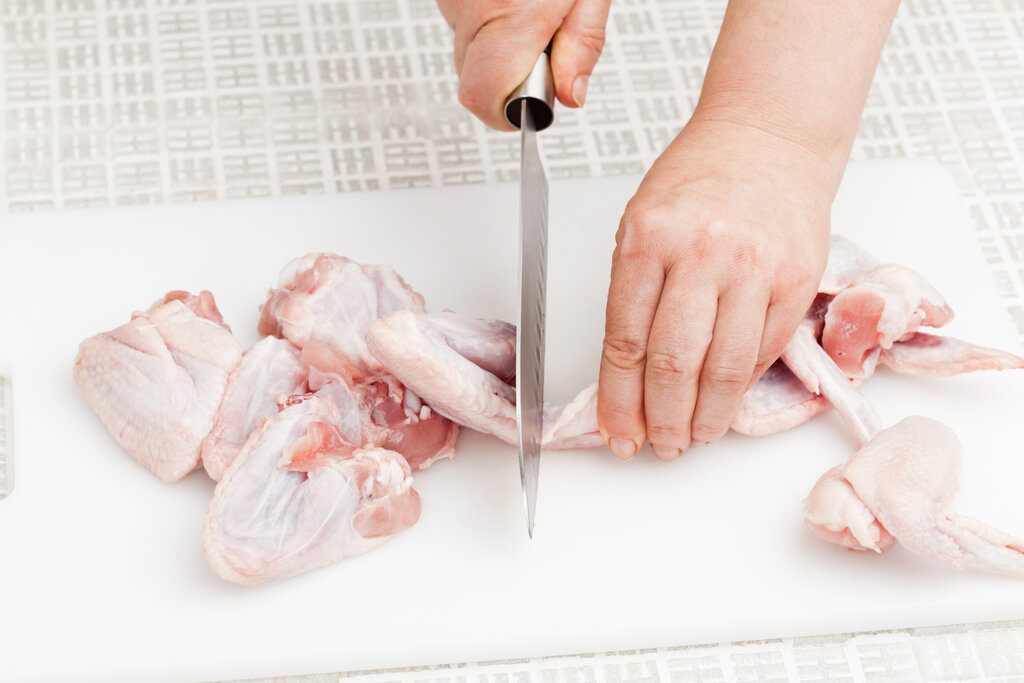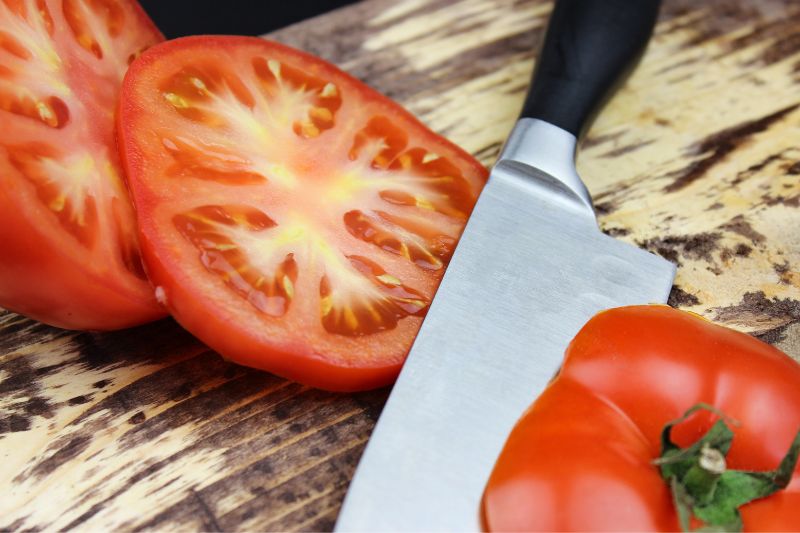Finding the Perfect Knife for Sourdough Bread - A BBQ Enthusiast's Guide
Written By James Morgan
Are you a barbecue enthusiast and find yourself asking, 'what is the best knife for cutting sourdough bread?' You're not alone! As much as we love grilling up a storm, slicing the perfect piece of sourdough bread can be just as satisfying. But the task isn't as straightforward as it may seem. Selecting the right knife can make a big difference, and that's what we'll explore in this engaging and in-depth article.
In the world of barbecue, precision is key, whether it's carving ribs, slicing brisket, or cutting sourdough bread. While we often think about the knives we need for meat, having the right blade for bread is equally important. After all, a poorly cut slice of bread can turn that perfect barbecue meal into a mess.

Why the Right Knife Matters
Before diving into what is the best knife for cutting sourdough bread, lets discuss why the right knife matters.
Preserving the Crust
The crust is arguably one of the best parts of sourdough bread. A good knife will ensure that the crust remains intact, providing that delightful crunch with each bite. Imagine slicing your freshly baked sourdough and ending up with crushed, torn piecesno barbecue enthusiast wants that! Ensure that your knife can smoothly cut through the crust without damaging it. To know more about preserving the crust, check out our article on what makes a good bread knife.
Maintaining Consistency
BBQ enthusiasts understand the importance of consistency, whether its in cooking temperatures or portion sizes. Similarly, the right knife will help you achieve consistent slices of sourdough bread, perfect for those Instagram-worthy barbecue setups.
Ease of Use
A well-designed knife will not only save you time but also reduce the effort required to cut through crispy crusts and dense interiors. This will leave you with more time to enjoy your barbecue creations. If you're curious about knife maintenance, check out our guides on how to sharpen a bread knife with an electric sharpener and how to sharpen a bread knife with a whetstone.

Key Features to Look for in the Best Sourdough Cutting Knife
With various types of knives available, picking the right one can be daunting. Here are the key features to consider.
Serrated vs. Non-Serrated Blades
Serrated knives are typically recommended for cutting bread. They feature a toothed blade that grips and cuts through the tough crust while minimizing damage to the soft interior. For those interested in the nuances of serrated blades, our article on double-serrated bread knives provides an in-depth look.
Blade Length
Considering the substantial size of a sourdough loaf, you'll want a knife with a sufficiently long blade. A blade length of around 10 inches is usually ideal for most bread loaves, giving you the control and reach needed to make precise cuts.
Handle Comfort
Comfort is crucial, especially if youre slicing multiple loaves for a large BBQ gathering. Look for ergonomic handles that offer a secure and comfortable grip. This minimizes hand fatigue and allows for greater control.
Weight and Balance
The weight and balance of the knife can significantly affect its performance. A well-balanced knife will feel comfortable in your hand and provide better control while cutting. If you're wondering which knife will suit your specific needs, our guide on which knife is best for cutting bread is a must-read.

Top Knife Recommendations
Here are some of the top knives that stand out when it comes to cutting sourdough bread.
1. WSTHOF Classic Bread Knife
This 10-inch knife features a high-carbon stainless steel blade that ensures durability and sharpness. The ergonomic handle offers comfort and control, making it excellent for prolonged use during your BBQ preps.
2. Global G-9 8-3/4 inch Bread Knife
This knife boasts a seamless design with a lightweight, perfectly balanced handle. The serrated blade effortlessly cuts through the toughest of sourdough crusts, providing clean and consistent slices.
3. Mercer Culinary Millennia 10-inch Wide Bread Knife
Known for its affordability and quality, this knife features a high-carbon, stain-resistant steel blade and a comfortable grip handle. Perfect for BBQ enthusiasts who want professional quality without breaking the bank.
4. Shun Classic 9-inch Bread Knife
This Japanese-made knife offers a VG-MAX steel blade with 34 layers on each side, creating a beautiful and functional knife. Its wooden Pakkawood handle ensures a comfortable and secure grip.

Maintenance and Sharpening Tips for Your Bread Knife
Taking care of your knife is crucial for ensuring its longevity and performance. Here are some tips:
Regular Cleaning
Always wash your bread knife by hand with mild detergent and water. Avoid putting it in the dishwasher, as the harsh detergents and high heat can damage the blade.
Proper Storage
Store your knife in a knife block or on a magnetic strip to protect the blade from damage. Keeping it loose in a drawer can dull the blade faster.
Sharpening Techniques
Serrated knives require special attention when it comes to sharpening. Using a knife sharpener designed for serrated blades or a professional sharpening service is recommended.
Conclusion
Choosing the right knife for cutting sourdough bread may seem trivial, but it plays a crucial role in your BBQ preparations. The right knife makes cutting bread effortless and enjoyable, ensuring that each slice complements your barbecue masterpiece. From preserving the crust to achieving consistent slices, the features and recommendations we've covered should help you make an informed decision.
FAQs
Q: Can I use a chefs knife instead of a bread knife?
A: While a chefs knife can work in a pinch, its not ideal for cutting bread. Bread knives are specially designed with serrated blades to cut through crusty and soft bread without crushing it.
Q: How often should I sharpen my bread knife?
A: Bread knives dont require sharpening as frequently as other knives. Depending on usage, once or twice a year is usually sufficient. However, always use the appropriate sharpening tools or services.
Q: Whats the difference between a serrated and a non-serrated knife?
A: Serrated knives have toothed blades which make them ideal for cutting through tough exteriors like bread crusts. Non-serrated knives have smooth edges and are better suited for slicing through soft foods.
As an Amazon Associate, I earn from qualifying purchases.



